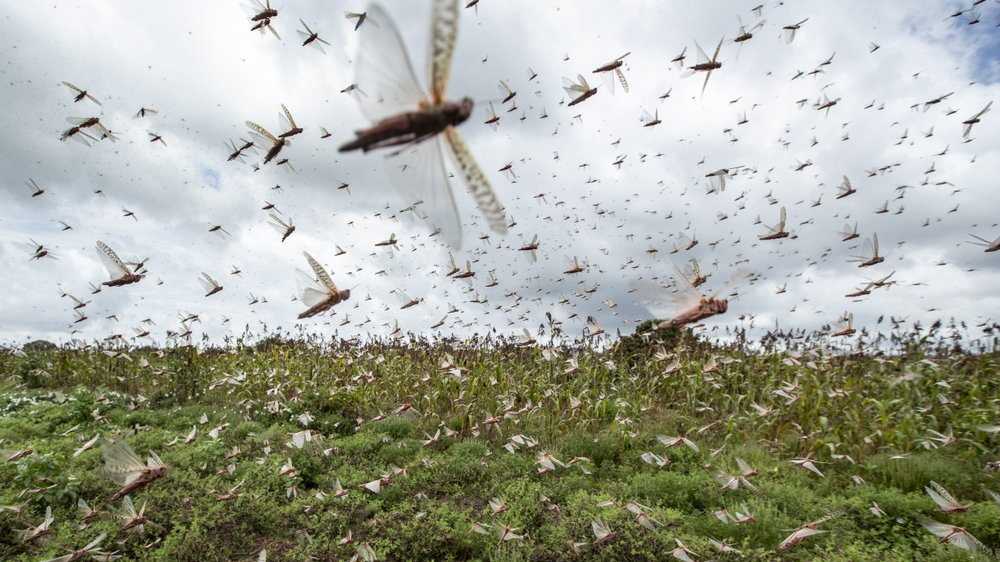
File photo: CGTN
MOGADISHU, April 20 (Xinhua) -- The Food and Agriculture Organization of the United Nations (FAO) said on Monday it has enhanced cooperation with Somalia to curb the spread of desert locust in the country.
The FAO said its collaboration with the Ministry of Agriculture and Irrigation will help strengthen local capacities, surveillance, and control operations to combat the desert locust upsurge even as the attention has been shifted to combatting COVID-19.
"Despite the current circumstances dominated by the COVID-19 pandemic, it is crucial that we keep reinforcing our collaboration and continue the hard work to contain the desert locust upsurge, and to protect lives and livelihoods," FAO Representative in Somalia Etienne Peterschmitt said in a statement. "Otherwise, we could end up in a serious food crisis by the end of the year."
The UN food agency said it is directly supporting desert locust control unit stations to undertake vital survey and control operations.
Peterschmitt said the current situation is critical, with the second generation of mature adults laying eggs and a new generation of immature adults forming swarms in Ethiopia and Kenya.
These, the UN official warned, could reach Somalia during the main Gu season, ravaging young crops and pasture.
Said Hussein Iid, Somalia's minister of agriculture and irrigation, said the FAO's technical expertise and capacity to mobilize resources is key for his country to confront the crisis.
"Even in times of coronavirus, we must not forget the massive threat that desert locusts pose to Somalia's food security and livelihoods," Iid said.
Thanks to concerted efforts by the government and the FAO, 31,026 ha out of the estimated 360,000 ha of land to be affected across the country has been controlled.
The FAO said ground control has been strengthened with the purchase of 18 vehicles for spraying, in addition to another 15 vehicles currently on hire for survey and control in northern and central Somalia.
"Nature-based biopesticides are a reliable, less harmful alternative for controlling locust outbreaks in fragile environments like Somalia," Iid said.
Recently, the FAO said, 12 vehicle-mounted sprayers and 10 backpack sprayers were delivered in Hargeisa and Mogadishu, with a further 10 vehicle-mounted sprayers triangulated from Mali and Morocco to support control efforts.
"Given the vast areas that need to be sprayed, three helicopters are being mobilized to Somalia to carry out aerial control operations," it said.


